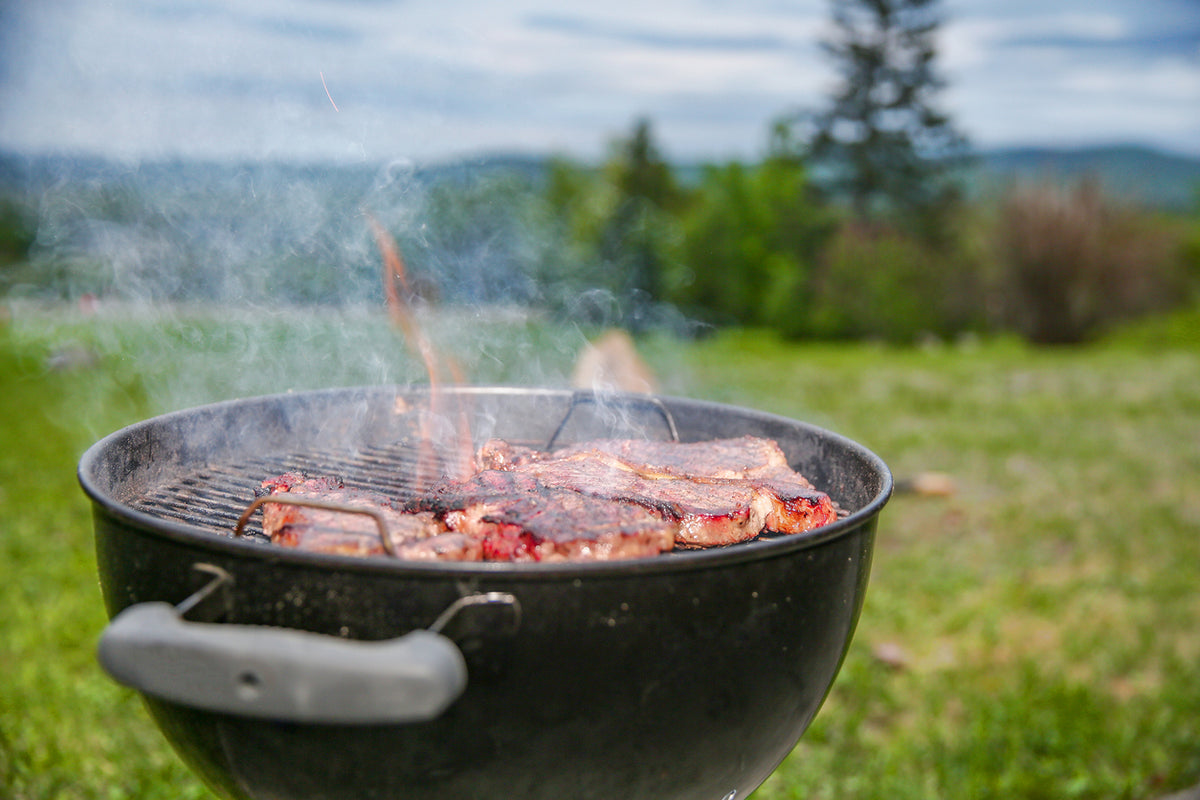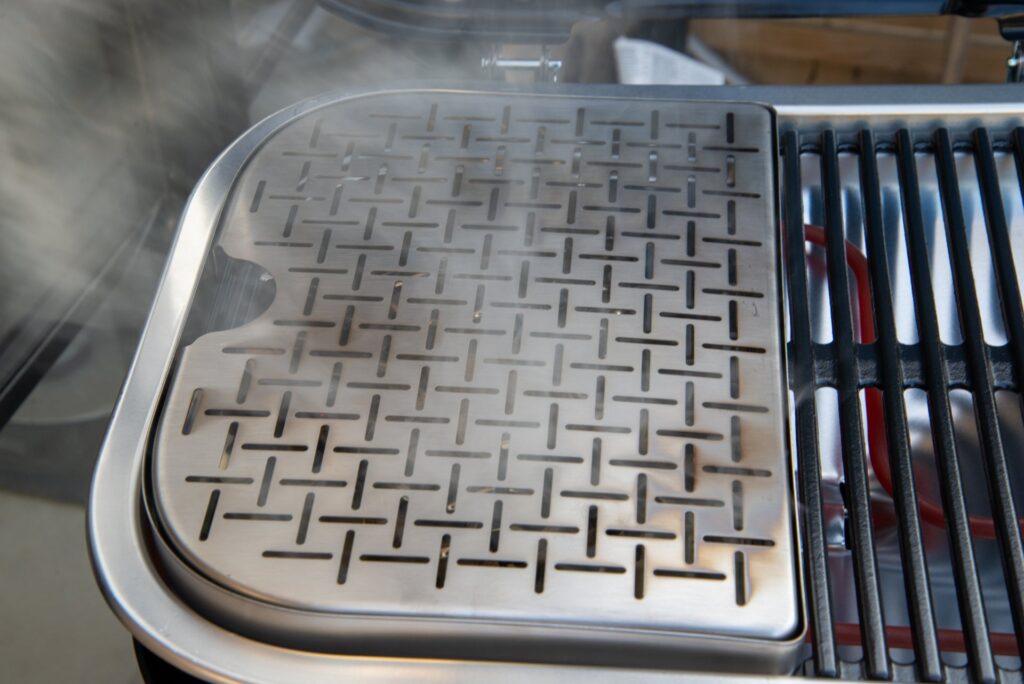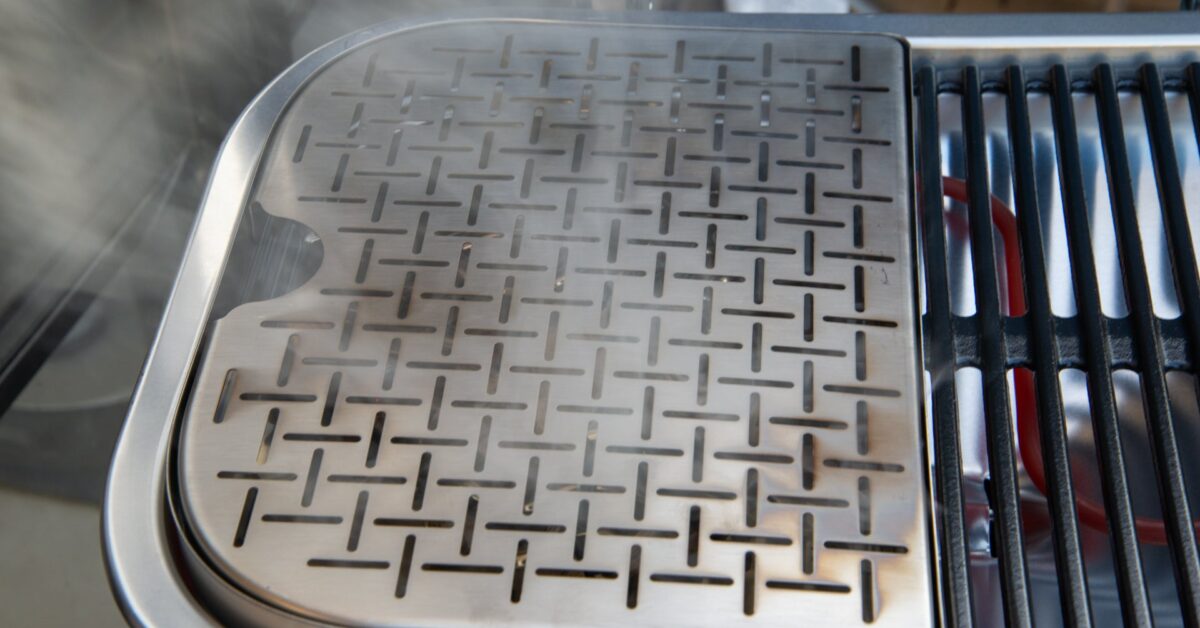Are BBQ smokers harmful to your health? Let’s explore the potential risks associated with using BBQ smokers. While BBQ smokers can enhance the flavor of your food, they also produce smoke that contains harmful chemicals.
Excessive consumption of smoked foods can increase the risk of certain health conditions. To mitigate the potential risks, it’s important to use BBQ smokers in moderation and maintain a well-balanced diet. Incorporating a variety of cooking methods can help minimize any negative impact on your health.

Are BBQ Smokers Bad for Your Health?
In recent years, BBQ smoking has become increasingly popular as a method of cooking and flavoring meat. However, concerns have been raised about the potential health risks associated with BBQ smoking.
In this article, we will explore the impact of BBQ smokers on your health, discussing the potential risks and benefits of this cooking technique. It’s important to make informed choices about our diet and lifestyle, so let’s delve into the topic of BBQ smokers and their effects on our well-being.
The Science Behind BBQ Smoking
When we talk about BBQ smoking, we are referring to the process of cooking food at low temperatures for an extended period, with the addition of smoke from wood chips or charcoal.
This method infuses the meat with a smoky flavor and tenderizes it, resulting in a unique and delicious taste. However, the smoke produced during BBQ smoking contains harmful compounds such as polycyclic aromatic hydrocarbons (PAHs) and heterocyclic amines (HCAs).
PAHs are formed when fat drips onto hot coals or heating elements, causing flames and smoke to rise. These compounds can stick to the surface of the meat, and when consumed in high amounts, they have been linked to an increased risk of cancer.
HCAs, on the other hand, are formed when proteins in meat react with the high temperatures of BBQ smoking. These compounds have also been associated with cancer development.
It’s worth noting that the health risks associated with BBQ smoking primarily come from the consumption of charred or well-done meat. The longer and higher the meat is exposed to smoke and heat, the higher the levels of harmful compounds. Therefore, moderation and proper cooking techniques are key to reducing the potential health risks.
Potential Health Risks
While BBQ smoking can add a delicious flavor to your food, it’s important to be aware of the potential health risks involved. The consumption of high levels of PAHs and HCAs has been associated with an increased risk of various types of cancer, including colorectal, pancreatic, and lung cancer.
Additionally, BBQ smoking can contribute to the formation of advanced glycation end products (AGEs), which have been linked to inflammation and the development of chronic diseases such as diabetes and heart disease.
Furthermore, exposure to the smoke produced during BBQ smoking can also have negative effects on respiratory health. The inhalation of smoke can irritate the airways and lungs, leading to respiratory symptoms such as coughing, wheezing, and shortness of breath.
Individuals with pre-existing respiratory conditions, such as asthma or chronic obstructive pulmonary disease (COPD), may be particularly vulnerable to the harmful effects of BBQ smoke.
It’s important to take precautions when using BBQ smokers to minimize the potential health risks. Choosing lean cuts of meat, marinating them before cooking, and trimming excess fat can help reduce the formation of harmful compounds.
Additionally, avoiding direct exposure to smoke by using proper ventilation and cooking in open spaces can also lower your risk.
The Benefits of BBQ Smoking
Despite the potential health risks, BBQ smoking also offers some benefits that can make it a worthwhile cooking technique, as long as it is done in moderation and with proper precautions.
Firstly, BBQ smoking allows for the retention of moisture in the meat, resulting in tender and juicy dishes. The slow cooking process breaks down collagen in the meat, making it more tender and easy to chew.
Additionally, BBQ smoking can enhance the flavors of your food by imparting a unique smoky taste. This can be particularly enjoyable for individuals who appreciate the complexity and depth that smoke can add to dishes, turning a simple meal into a gastronomic delight.
Furthermore, BBQ smoking provides an opportunity to spend time outdoors with family and friends, creating memorable experiences around the grill.
It’s important to strike a balance between indulging in the delectable flavors of BBQ smoking and being mindful of the potential health risks associated with it. Moderate consumption, proper cooking techniques, and a well-rounded diet are key to enjoying the benefits of BBQ smoking while minimizing the negative impact on your health.
Choosing the Right BBQ Smoker
When it comes to BBQ smoking, the type of smoker you choose can also influence the health impact of this cooking method. There are various types of smokers available on the market, each with its pros and cons. Let’s take a closer look at some popular options:
1. Charcoal Smokers: These smokers use charcoal as the primary source of fuel. While they can produce intense smoke and flavor, they tend to generate higher levels of harmful compounds. This is because charcoal produces more smoke and can lead to uneven heat distribution, resulting in charred spots on the meat. If using a charcoal smoker, it’s important to use proper ventilation and avoid excessive charring.
2. Electric Smokers: Electric smokers are easy to use and maintain a consistent temperature throughout the cooking process. They produce less smoke and require minimal monitoring.
However, they may not provide the same level of smoky flavor as other types of smokers. If you prioritize convenience and ease of use, an electric smoker might be a good option.
3. Pellet Smokers: These smokers use wood pellets as their fuel source, combining the convenience of electric smokers with the authentic flavor of wood smoke.
The temperature can be easily controlled, and they produce a steady amount of smoke. Pellet smokers are a popular choice among BBQ enthusiasts who value flavor and ease of use.
4. Gas Smokers: Gas smokers use propane or natural gas to generate heat and smoke. They offer precise temperature control and are generally cleaner to use compared to charcoal smokers.
However, they may not provide as strong of a smoky flavor. Gas smokers are a good option for those who prioritize convenience and simplicity.
Choosing the right BBQ smoker for your needs and preferences can help you enjoy the art of smoking while minimizing potential health risks. Remember to prioritize safety, moderation, and proper cooking techniques to ensure a healthy and flavorful BBQ experience.

Are there any alternatives to BBQ smokers that are healthier?
Absolutely! Several alternative cooking methods are generally considered healthier than BBQ smokers. One such method is grilling on a gas grill, which produces fewer harmful compounds like PAHs and HCAs compared to charcoal smokers.
Gas grills also offer precise temperature control, allowing you to cook food at lower temperatures and reduce the formation of harmful substances.
Other cooking methods, such as baking, boiling, and roasting, can also be healthier options. These methods do not expose food to direct flames or intense heat, reducing the formation of harmful compounds.
Ultimately, incorporating a variety of cooking methods into your routine can help minimize potential health risks associated with BBQ smokers.
FAQs about BBQ Smoking and Health
Now that we have explored the potential health risks and benefits of BBQ smoking, let’s address some common questions and misconceptions related to this cooking method:
1. Can BBQ smoking lead to immediate health problems?
No, the health risks associated with BBQ smoking are usually a result of long-term exposure to high levels of harmful compounds. Consuming BBQ-smoked meat occasionally is unlikely to cause immediate health problems, but it’s important to practice moderation and follow proper cooking techniques to minimize risk.
2. Can marinating meat before BBQ smoking reduce the formation of harmful compounds?
Yes, marinating meat before BBQ smoking has been shown to reduce the formation of PAHs. Ingredients such as vinegar, citrus juice, and herbs can help create a protective barrier between the meat and the heat, reducing contact with harmful compounds.
3. Is BBQ smoking healthier than other cooking methods?
BBQ smoking, like any cooking method, has its pros and cons. While it can add unique flavors and tenderize the meat, it also poses potential health risks if not done correctly. It’s important to focus on moderation, use proper cooking techniques, and maintain a varied and balanced diet to ensure overall health.
4. Are there any tips for reducing smoke exposure during BBQ smoking?
To reduce smoke exposure during BBQ smoking, it’s advisable to cook in well-ventilated areas, such as outdoor spaces. Position the smoker away from doorways and windows to prevent smoke from entering the house. Additionally, using an exhaust fan or opening windows can help improve air circulation and minimize exposure to smoke.
5. Can BBQ smoking be a healthy cooking option?
With proper precautions and moderation, BBQ smoking can be a part of a healthy lifestyle. Choosing lean cuts of meat, practicing proper cooking techniques, and consuming BBQ-smoked dishes in moderation can help minimize potential health risks while still enjoying the unique flavors and experience that BBQ smoking offers.
Conclusion
BBQ smoking can provide a flavorful and enjoyable cooking experience, but it’s important to be mindful of the potential health risks associated with this method. The smoke produced during BBQ smoking contains harmful compounds that can increase the risk of cancer and have negative effects on respiratory health.
By choosing lean cuts of meat, marinating them before cooking, and practicing proper cooking techniques, you can minimize the formation of harmful compounds and reduce potential health risks. Additionally, selecting the right BBQ smoker for your needs can help you enjoy the art of smoking while prioritizing safety and flavor.
Ultimately, moderation is key. Enjoy BBQ-smoked dishes as part of a balanced diet and consider incorporating other cooking methods to ensure a varied and healthy eating plan. By making informed choices, you can savor the delicious flavors of BBQ smoking while taking care of your health.




